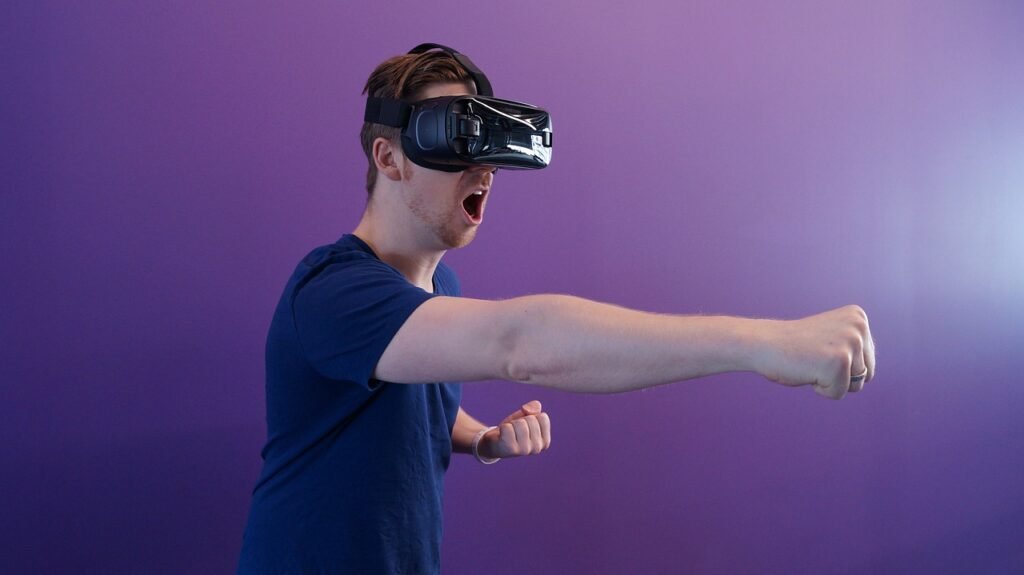The events industry is changing due to disruptive innovation, which is bringing in new models that promote sustainable practices and positive change. Industry professionals examined a range of cutting-edge techniques and their practical implementations during a recent panel discussion, emphasizing how these changes are having a big impact on the sector.

Creative Models
Hybrid Events: A major disruptive innovation is the growing popularity of hybrid events, which blend virtual and in-person components. These events may reach a larger audience, cut expenses, and lessen the carbon imprint of travel by utilizing technology. For instance, the Consumer Electronics Show (CES) greatly expanded its reach and accessibility when it changed to a hybrid model that allowed attendees to virtually join from anywhere in the world.
AI and Data Analytics: These two technologies are revolutionizing the design and implementation of events. Through the analysis of preferences and actions, AI can tailor the experience of attendees. One real-world example is the deployment of AI-driven chatbots at sizable conferences such as Web Summit, which offer guests individualized agendas, real-time information, and networking opportunities.
Sustainable Practices: Another disruptive innovation is the use of sustainable practices to events. This entails cutting back on waste, making use of renewable energy sources, and pushing environmentally friendly products. For example, the Glastonbury Festival has set the standard for sustainable event management with its use of measures like the ban on single-use plastics and the usage of biofuel generators.
Useful Applications
Event Management Platforms: Cutting-edge systems such as LeviaMICE, Cvent and Eventbrite have completely changed the way events are planned. These solutions streamline the entire process and improve the overall experience by providing all-inclusive capabilities for tickets, registration, and attendance management. For instance, event planners can now effectively oversee events of any size, from intimate get-togethers to massive conferences, thanks to Eventbrite’s intuitive UI and powerful analytics.
Virtual reality (VR) and augmented reality (AR): These two technologies are bringing previously unthinkable immersive experiences to life. With the use of these technologies, participants can engage with 3D product demos, tour virtual exhibition halls, and watch keynote speeches remotely. Using virtual reality (VR), the Tomorrowland music festival created a digital festival experience that drew hundreds of thousands of virtual visitors and offered an immersive, participatory setting.

Crowdsourcing and crowdfunding: Two cutting-edge concepts that have gained popularity are crowdsourcing ideas and crowdfunding event projects. Thanks to websites like Kickstarter and GoFundMe, event planners can now solicit both cash and innovative ideas from the public. An important illustration of this is the yearly Burning Man event, which greatly depends on volunteerism and teamwork to produce its distinctive, interactive experience.
Blockchain Technology: Using blockchain technology, event ticketing is becoming more transparent and secure. Blockchain is being used by businesses such as Blockparty and GUTS Tickets to stop fraud and guarantee equitable ticket delivery. To mitigate the risk of counterfeit tickets and scalping, Blockparty’s blockchain-based technology, for example, offers a tamper-proof mechanism for ticket issuing and tracking.
Examples of Disruptive Innovation in Real Life
South by Southwest, or SXSW: Well-known for its creative thinking, SXSW has adopted disruptive ideas by fusing different technologies with eco-friendly methods. The festival has put in place a number of green measures to reduce its impact on the environment and employs data analytics to maximize the experience of attendees.
TED Conferences: By providing free online access to its speeches, TED has completely transformed the way ideas are shared. This strategy has increased its global reach and opened up access to excellent content for millions of people, even beyond the actual conference attendees.
The Climate Reality Project: Started by Al Gore, this program trains global climate leaders through a hybrid paradigm. It uses a combination of face-to-face meetings and a wealth of online tools to increase its influence and cultivate an international network of supporters.
IMEX Group: AI-driven matchmaking services and environmentally friendly event practices are integrated into IMEX, an exhibition for the incentive travel, meetings, and events sector. By connecting attendees with pertinent exhibitors and sessions, their usage of AI improves networking possibilities and the overall value of the event.
Upcoming prospects
With the ongoing advancement of technology and creative models, the events industry is expected to face significant disruptions in the future. The growing use of biometric data for individualized experiences, the development of blockchain-based decentralized event planning, and the incorporation of AI into every facet of event management are some of the upcoming developments.
The events industry can improve sustainability, efficiency, and guest engagement by embracing disruptive innovation, which will guarantee a bright and exciting future for the sector. These illustrations show how these models’ real-world applications are already advanced and provide insight into the revolutionary potential of disruptive innovation in events.
